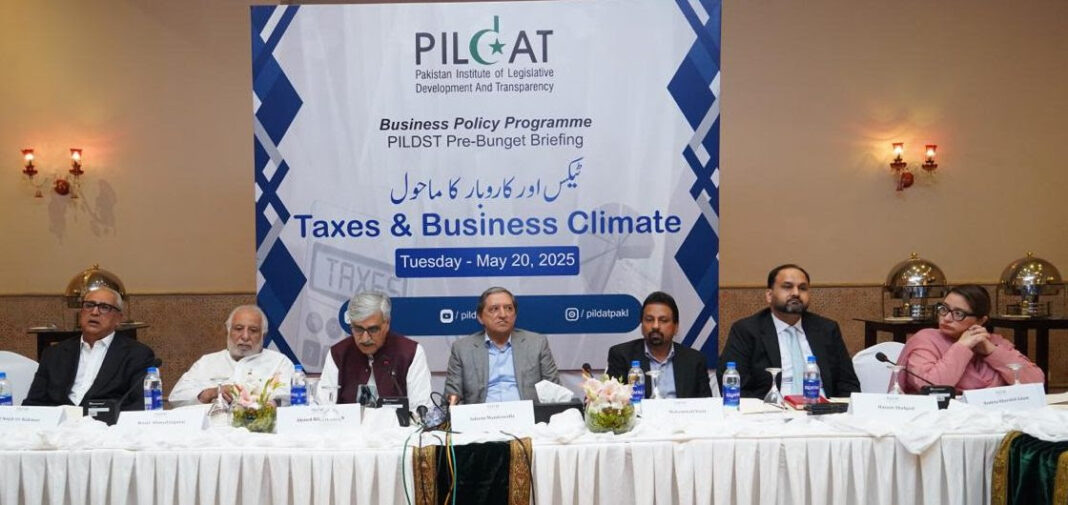NEWS DESK
ISLAMABAD: The Pakistan Institute of Legislative Development and Transparency (PILDAT) convened a High-Level Consultative Forum today in Islamabad to address Pakistan’s economic challenges, focusing on tax reforms and improving the business climate. The forum brought together prominent voices from government, business, civil society, and media to propose actionable reforms for sustainable economic growth.
Dr. Imtiaz Ahmed, Chief Economist of Pakistan, delivered the keynote address, highlighting the limited fiscal space due to the IMF programme but reaffirming the government’s commitment to creating a more enabling environment for business.
Welcoming participants, PILDAT President Ahmed Bilal Mehboob underscored the urgent need for tax reform. He called for a predictable and fair tax regime, simplified compliance mechanisms, and greater focus on economic issues in political discourse.
Representing the private sector, Dr. Muhammad Nasir of FrieslandCampina Engro Pakistan raised concern over the 18% GST on packaged milk, stating it has increased consumer prices and impacted affordability. He urged policy support to formalize and stabilize the dairy sector.
Mr. Muhammad H. Shafqaat, CEO of the Pakistan Textile Council, identified key sectoral challenges including delayed tax refunds, energy pricing inconsistencies, and an uncompetitive tax regime. He proposed unified taxation, faster refund processing, and incentives for green investments.
Mr. Nejib ur Rahman, Advisor to the Pakistan Banks Association, highlighted the excessively high effective tax rate on banks (54–55%) and termed the ADR-based tax distortionary and unconstitutional.
Lawmakers including MNA Naveed Qamar and MNA Romina Khurshid Alam emphasized inclusive policymaking and aligning climate priorities with economic goals in the upcoming budget. Senator Saleem Mandviwalla assured that, for the first time, the Senate Finance Committee will review the budget and reflect stakeholder input.








